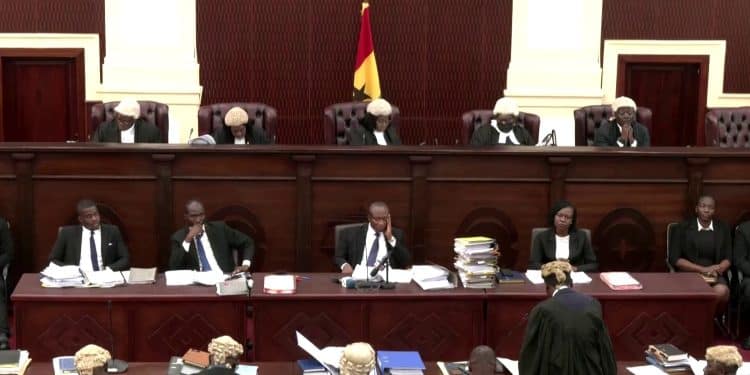The trial judge who mandated that the Electoral Commission (EC) recollect election results in nine contested constituencies has been accused by the National Democratic Congress (NDC) with bias and procedural mistakes.
The High Court ordered the EC to re-collate results in constituencies where anomalies were suspected in its December 20 verdict, which was based on a mandamus suit submitted by parliamentary candidates for the New Patriotic Party (NPP). The NPP contended that in order to guarantee accuracy and transparency, disparities in the tabulated results required scrutiny.
AI
The NDC contested the decision, calling it contentious and legally incorrect, while others saw it as supporting the EC’s constitutional duty to guarantee legitimate elections.
Although the EC complied with the order in seven constituencies, Dome/Kwabenya and Ablekuma North still have unfinished recollation processes.
Godwin Edudzi Tamakloe, the Director of Legal Affairs for the NDC, contended that the High Court’s ruling went against natural justice principles during Friday, December 27 Supreme Court proceedings.
He asserted that the decision was greatly impacted by the NDC’s denial of the chance to make its case.
The NDC further claimed that the trial judge was biased and neglected to follow important procedural rules.
Tamakloe pointed to a “non-jurisdictional error of law,” stating that the judge neglected Order 55 Rule 5 (2) of CI 47, which requires parties with an interest in a mandamus application to be notified and allowed to respond.
The ongoing legal battle has become even more difficult due to the accusations of judicial misconduct and procedural errors, and the Supreme Court’s decision is anticipated to have significant ramifications.
“Our ground for this application is that the orders made by the High Court were made in breach of the applicant’s rights to be heard. The further ground is that the trial judge demonstrated apparent bias and partiality.
“There was a non-jurisdictional error of law by failing to exercise the court’s powers under Order 55 Rule 5 (2) of CI 47 to direct second to sixth interested parties to serve the mandamus application on the applicant who have interest in the dispute.”






